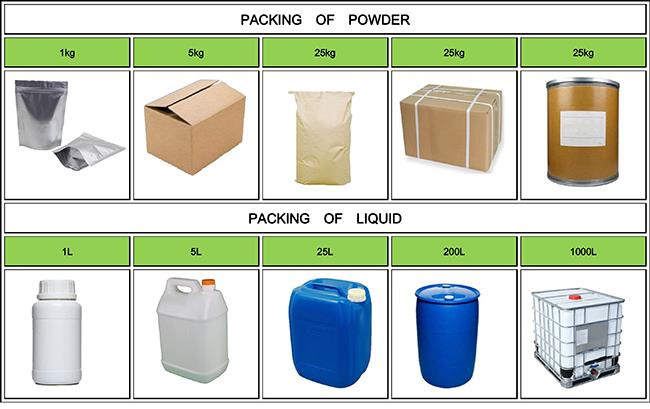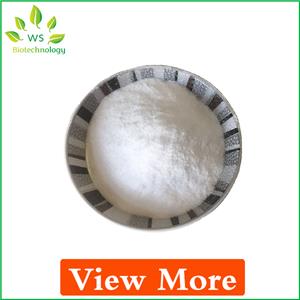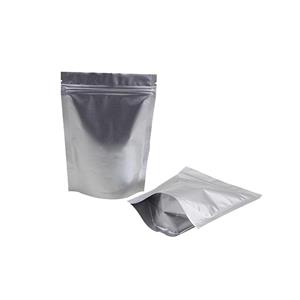**Cidofovir anhydrous** is the anhydrous form of the antiviral drug Cidofovir, which is a nucleotide analogue used to treat DNA virus infections. Like Cidofovir hydrate, it is particularly effective against DNA viruses and has similar clinical, research, and potential therapeutic applications. The anhydrous form has certain stability advantages, making it useful in specific formulations.
### Applications of Cidofovir Anhydrous:
### 1. **Antiviral Treatment**:
- **Cytomegalovirus (CMV) Retinitis**: Cidofovir anhydrous is used to treat **CMV retinitis**, a serious viral eye infection that can lead to blindness, especially in immunocompromised patients such as those with AIDS. It works by inhibiting viral DNA polymerase, preventing viral replication.
- **Adenovirus and Herpesvirus Infections**: Cidofovir anhydrous shows activity against other **DNA viruses**, such as adenoviruses and herpesviruses, and is used off-label for severe or resistant infections, especially in transplant patients or those with weakened immune systems.
### 2. **Broad-Spectrum Antiviral Activity**:
- **Orthopoxvirus (Smallpox, Monkeypox)**: Cidofovir anhydrous has been explored as a potential treatment for **orthopoxvirus infections**, including **smallpox** and **monkeypox**. It is particularly valuable in situations of bioterrorism threats involving smallpox or during outbreaks of poxviruses due to its efficacy against viral DNA polymerase.
- **Human Papillomavirus (HPV)**: Cidofovir has demonstrated antiviral properties against HPV, which is associated with a variety of skin and mucosal lesions. It is explored as a treatment for **recurrent respiratory papillomatosis** and other HPV-related conditions.
### 3. **Topical Use for Viral Lesions**:
- **Topical Formulations**: Cidofovir anhydrous has been used in **topical preparations** to treat **viral skin infections** such as **molluscum contagiosum** and **anogenital warts** caused by HPV. Topical application allows direct delivery of the drug to the site of infection, reducing systemic exposure and side effects.
### 4. **Experimental Use in Oncology**:
- **Potential Antitumor Activity**: Cidofovir anhydrous has been studied for its potential anticancer effects, particularly in **HPV-related cancers** such as cervical and head and neck cancers. It may induce apoptosis (cell death) in HPV-infected tumor cells, making it a candidate for use in combination with other cancer therapies.
### 5. **Biodefense and Emerging Viral Infections**:
- **Poxvirus Preparedness**: Cidofovir anhydrous has been considered in **biodefense** strategies due to its efficacy against **smallpox** and other orthopoxviruses. In the event of a smallpox outbreak or bioterrorism attack, Cidofovir anhydrous could be stockpiled as a treatment option.
- **Emerging Viral Infections**: It is also being studied for potential use in treating infections caused by newly emerging or drug-resistant DNA viruses, including **BK virus** in transplant patients and **adenovirus** in immunocompromised patients.
### 6. **Laboratory and Research Use**:
- **In Vitro Studies**: Cidofovir anhydrous is frequently used in laboratory settings for **antiviral research**. Its stability and potency make it an ideal compound for studying viral replication and the development of new antiviral therapies targeting DNA viruses.
- **Development of Novel Antivirals**: As a reference compound, Cidofovir anhydrous is used in research to develop and screen new nucleotide analogues that could serve as more effective or better-tolerated treatments for viral infections.
### 7. **Advantageous Formulation**:
- **Enhanced Stability**: The anhydrous form of Cidofovir is preferred in some pharmaceutical formulations due to its **greater stability** in dry form, which can enhance the shelf life of the drug. This makes it useful for long-term storage and in situations where maintaining stable conditions is critical.
In summary, Cidofovir anhydrous is an important antiviral agent with broad-spectrum activity against DNA viruses, especially CMV and poxviruses. Its potential in treating HPV-related conditions, use in topical antiviral therapy, and application in research and biodefense further underscore its versatility and clinical relevance.







 China
China





